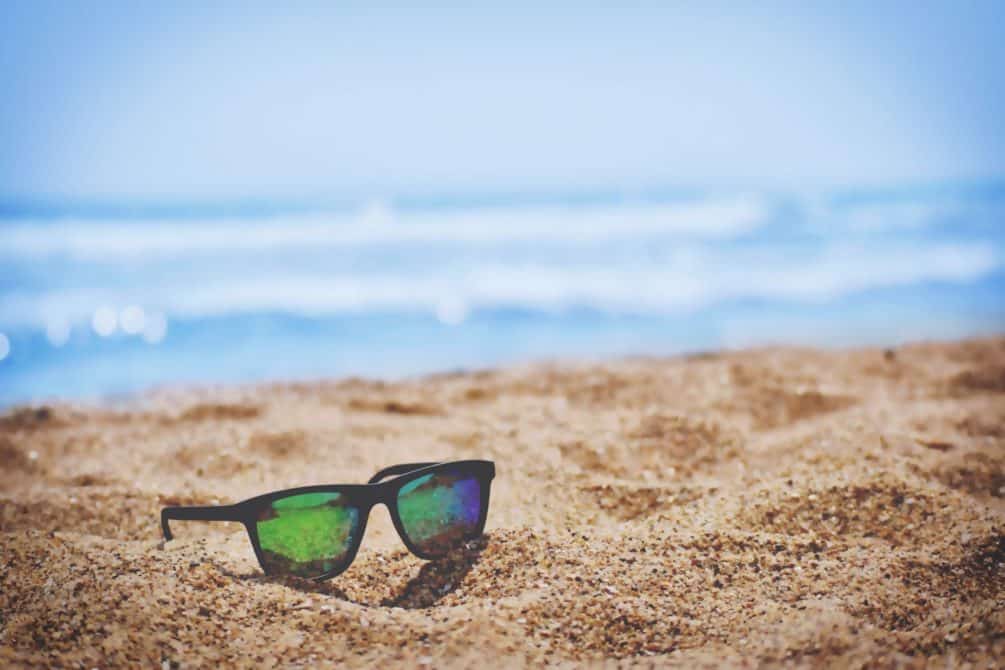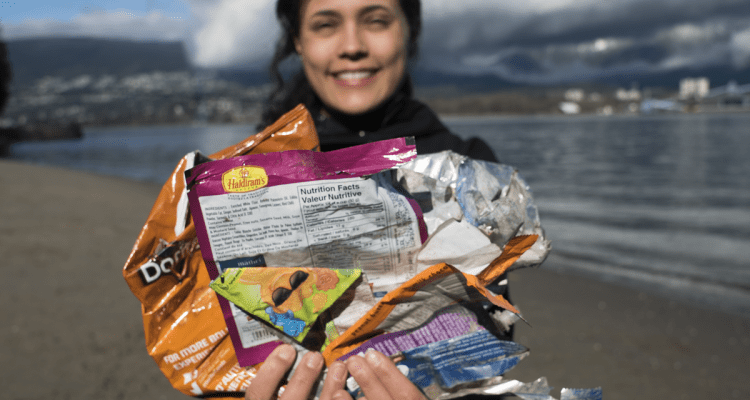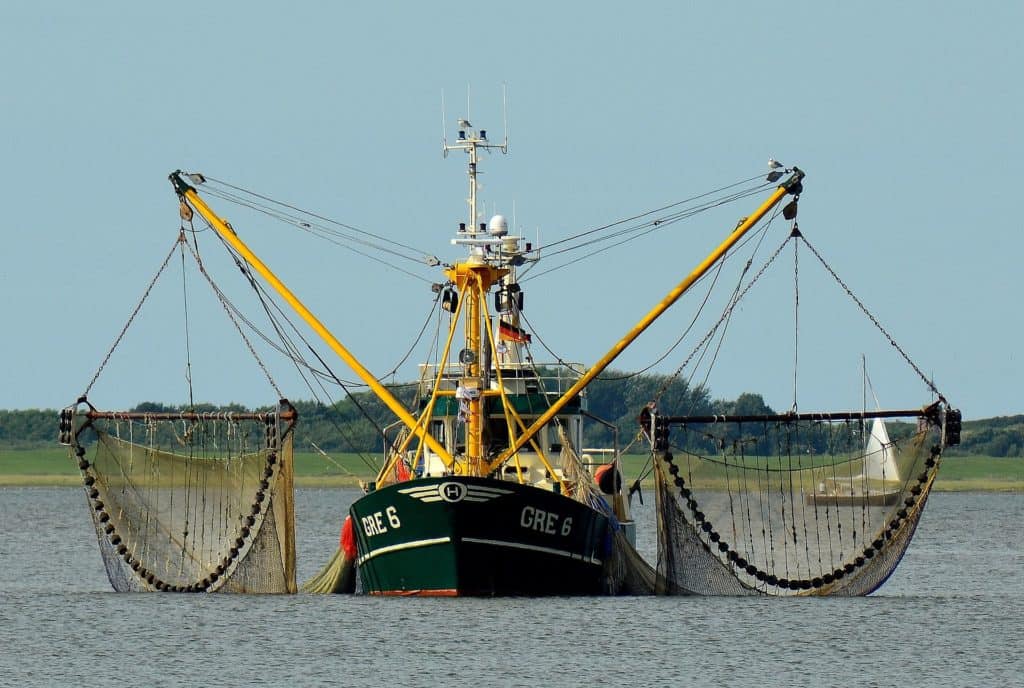
The Ocean and Human Connection
No matter where we live, the ocean influences all of us. On the other hand, the actions of over 7.6 billion humans add up to influence the ocean.
The ocean provides us with the necessary resources to survive: oxygen, water, and food.
Even if you do not eat seafood, fish meal is used to feed poultry and pork, as well as to organically fertilize crops for millennia. Fish and other seafood are vital for good nutrition.
The ocean is also a source of minerals, energy resources, and medicines.
The ocean provides us with jobs and stimulates the economy. Fishing, travel and tourism, and research are all industries that provide jobs for thousands of people all around the world. Trade is possible through transportation over the ocean.
Beyond the necessities, the ocean also provides humans with the privilege to partake in leisure activities on the water. Anywhere from sports fishing, to sailing, to water skiing, people partake in ocean sports. The ocean can also be a source of relaxation for people or it may provide inspiration for art. The possibilities that the ocean gives us are endless.
More than that, the ocean also provides us with protection. We are not immune to the ocean or the natural disasters that may come from it. Much of the global population lives in or close to the coastal areas. These concentrations of people make the need to restore and protect adjacent ecosystems even more important.
The natural system provides us with protection from rising sea levels, cyclones, hurricanes, storm surges, and tsunamis. The reconstruction of wetland habitats, dam removal, and inclusion of local knowledge in decision-making is being tested and, with early results, looks to be promising. People are collaborating to include natural systems’ needs in constructed coastline design, which gives us the change to improve how we harden, dredge and construct harbours and ports.
It is a collaborating effort, one that needs cooperation in all aspects of society. About 70% of the earth is water but there are no countries or governing bodies to build laws for the middle of the ocean. It is these unclear marine geopolitical boundaries and jurisdictions that create loopholes for problems such as unsustainable fishing. If some countries have loose regulations that allow for unsustainable fishing, while others are strict about their regulations, then a conflict in the protection of large fish species, like tuna, occurs.
This is just one example of how human activity affects the ocean, often in a detrimental way. Everyone is aware of the pollution that falls into the ocean but most focus on the macro pollutants such as large pieces of garbage. Some of the biggest threats from human interference are pollutants that we cannot see: microplastics and noise.
When plastic enters the ocean, it does not disappear over time. Instead it breaks down and becomes microplastic that is smaller than krill. Microplastics are almost unidentifiable from regular microorganisms to humans and organisms in the ocean that rely on microorganisms as their food source certainly cannot tell. These microplastics are consumed by filter feeding animals such as crabs, bivalves, and sea anemones, as well as baleen whales like the Blue Whale and Humpback Whale.
The plastics, unable to be broken down, accumulate in the organisms and provide no nutrients. Filter feeding organisms, like crabs, are then often eaten by bigger fish which are in turn eaten by even bigger fish. This accumulation of plastic in organisms through the food web is called bioaccumulation. Plastics, pesticides, chemicals, and other hazards pollutants can accumulate and become concentrated in larger predatory organisms which can in turn make it to our dinner plates.

Noise pollution is the other form of invisible pollution that is harming the environment, particularly in the arctic. Noise pollution is the excessive amount of noise being introduced into the marine environment through human activity, specifically boat traffic. This noise can cause damage to the sensitive hearing of marine organisms, as well as disrupt their vital communication.
As the ice continues to melt in the Arctic, the amount of boat traffic in that environment increases. This boat noise is dangerous for communicative animals such as Beluga whales, the canaries of the sea, who rely on echolocation to communicate with their social pods, as well as between mother and calf. Listen to what the beluga sounds like

While the threat to the ocean’s health is critical, it is not yet irreversible. We have the potential to create real change, every day in our homes and globally through international cooperation. Everyone is responsible for the ocean, and every bit counts. Individual and collection action needed to secure a sustainable future.
With this knowledge, humans can work together to achieve the United Nations Sustainability Goals. With our understanding of the ocean, we can work towards the goals.
14.1 By 2025, prevent and significantly reduce marine pollution of all kinds, in particular from land-based activities, including marine debris and nutrient pollution
14.2 By 2020, sustainably manage and protect marine and coastal ecosystems to avoid significant adverse impacts, including by strengthening their resilience, and take action for their restoration in order to achieve healthy and productive oceans
14.3 Minimize and address the impacts of ocean acidification, including through enhanced scientific cooperation at all levels
14.4 By 2020, effectively regulate harvesting and end overfishing, illegal, unreported and unregulated fishing and destructive fishing practices and implement science-based management plans, in order to restore fish stocks in the shortest time feasible, at least to levels that can produce maximum sustainable yield as determined by their biological characteristics
14.5 By 2020, conserve at least 10 per cent of coastal and marine areas, consistent with national and international law and based on the best available scientific information
14.6 By 2020, prohibit certain forms of fisheries subsidies which contribute to overcapacity and overfishing, eliminate subsidies that contribute to illegal, unreported and unregulated fishing and refrain from introducing new such subsidies, recognizing that appropriate and effective special and differential treatment for developing and least developed countries should be an integral part of the World Trade Organization fisheries subsidies negotiation
14.7 By 2030, increase the economic benefits to Small Island developing States and least developed countries from the sustainable use of marine resources, including through sustainable management of fisheries, aquaculture and tourism
14.A Increase scientific knowledge, develop research capacity and transfer marine technology, taking into account the Intergovernmental Oceanographic Commission Criteria and Guidelines on the Transfer of Marine Technology, in order to improve ocean health and to enhance the contribution of marine biodiversity to the development of developing countries, in particular small island developing States and least developed countries
14.B Provide access for small-scale artisanal fishers to marine resources and markets
14.C Enhance the conservation and sustainable use of oceans and their resources by implementing international law as reflected in UNCLOS, which provides the legal framework for the conservation and sustainable use of oceans and their resources, as recalled in paragraph 158 of The Future We Want
Posted January 17, 2022 by Meighan Makarchuk

